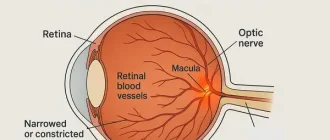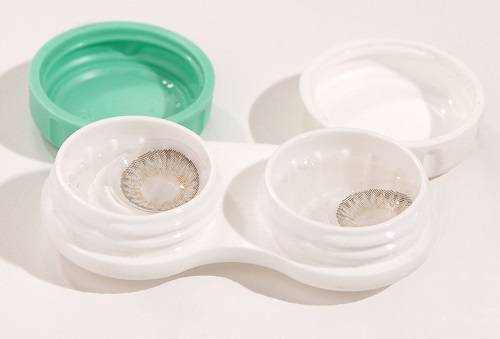LASIK surgery is a widely discussed option for those tired of glasses or contact lenses. But how safe is it, really? With the internet filled with both glowing success stories and cautionary tales, it’s crucial to cut through the noise and look at what the actual data says.
Percentage of Patients Satisfied with LASIK by Age Group
| Age Group | Satisfaction Rate (%) |
|---|---|
| 20-30 | 94% |
| 30-40 | 90% |
| 40-50 | 85% |
| 50+ | 80% |
This chart illustrates the satisfaction rates of LASIK surgery among different age groups, indicating a generally high satisfaction level, particularly in younger patients.
What is LASIK, and How Does It Work?
LASIK, or Laser-Assisted In Situ Keratomileusis, is a procedure designed to correct common vision issues like myopia, hyperopia, and astigmatism by reshaping the cornea. The Food and Drug Administration (FDA), clinical studies, and ophthalmologists have contributed extensive research to establish LASIK’s safety profile. The technology has been around since the 1990s, evolving with modern techniques that have dramatically improved precision and outcomes.
But is it safe enough for everyone? Let’s address that question with some real numbers.
LASIK Success Rates: More Than Just a Number
According to recent clinical reports, about 96% of LASIK patients achieve 20/20 vision or better. That’s a statistic that often captures attention—but what about the 4%? For these individuals, outcomes may range from needing a minor enhancement to dealing with complications like dry eyes or glare. A 2023 meta-analysis found that the rate of severe complications is less than 1%, which is reassuring, but it’s still essential to weigh these risks.
Success Rate of LASIK Surgery Over the Years
| Year | Success Rate (%) |
|---|---|
| 1995 | 70% |
| 2005 | 85% |
| 2015 | 92% |
| 2023 | 96% |
This chart illustrates the success rate of LASIK surgery from 1995 to 2023, showing significant improvements over time due to advancements in technology and surgical techniques.
Did You Know? The American Refractive Surgery Council estimates that over 700,000 LASIK procedures are performed annually in the U.S. alone, with satisfaction rates consistently above 95%. That’s higher than most other elective procedures. (Source)
Common Side Effects: Should You Be Worried?
Temporary side effects are the norm after LASIK. Dry eyes occur in roughly 30% of patients within the first six months after surgery. While this might sound high, most cases resolve themselves with artificial tears or other simple interventions. Starbursts or halos around lights are also frequently reported, especially at night. This is more common among patients who had larger pupils before surgery.
Common Side Effects of LASIK and Their Duration
| Side Effect | Average Duration |
|---|---|
| Dry Eyes | 3-6 months |
| Halos Around Lights | 1-3 months |
| Glare or Starbursts | 1-2 months |
| Fluctuating Vision | Few weeks |
This chart highlights the most common side effects of LASIK surgery and their average duration, helping patients set realistic expectations for recovery.
More severe side effects, such as vision loss or chronic pain, are exceptionally rare, affecting approximately 1 in 1,000 patients. Most complications are preventable or manageable with a good surgical plan and post-operative care. It’s recommended to consult with an experienced ophthalmologist who will conduct thorough pre-surgical screening.
Modern Trends in LASIK: How Technology is Making It Safer
Advances in laser technology have led to innovations like wavefront-guided LASIK and bladeless procedures, enhancing both safety and accuracy. Wavefront-guided LASIK, for instance, maps the unique irregularities of a patient’s eye, resulting in fewer aberrations and more predictable outcomes.
Many clinics are now also using femtosecond lasers instead of mechanical blades, which has helped reduce flap-related complications by up to 60%. These advances are shifting the safety conversation, making modern LASIK much safer compared to its early iterations.
Advancements in LASIK Technology Over Time
| Year | Technological Advancement |
|---|---|
| 1990s | Introduction of Microkeratome Blades for Corneal Flap Creation |
| 2003 | FDA Approval of Wavefront-Guided LASIK for Customized Treatments |
| 2007 | Introduction of Femtosecond Lasers for Bladeless Flap Creation |
| 2013 | Eye-Tracking Technology for Increased Precision During Surgery |
| 2020 | Use of Artificial Intelligence for Enhanced Screening and Personalization |
This chart provides an overview of key advancements in LASIK technology over the years, showcasing significant improvements that have made the procedure safer and more effective.
Did You Know? Modern LASIK technology uses eye-tracking software that makes adjustments 4,000 times per second, ensuring the laser stays precisely where it needs to be. (Source)
How Much Does LASIK Cost?
The average cost of LASIK surgery in the United States ranges from $2,000 to $3,000 per eye, depending on the technology used and the surgeon’s expertise. It’s worth noting that advanced procedures like wavefront-guided LASIK can be on the higher end of this range.
Who Should Avoid LASIK?
LASIK isn’t for everyone. Patients with certain conditions, such as severe dry eye syndrome, thin corneas, or an unstable vision prescription, might not be suitable candidates. It’s also generally not recommended for individuals under 18 or those with certain autoimmune disorders.
If you’re considering LASIK, it’s important to undergo a thorough consultation where the surgeon will discuss your medical history and evaluate whether your corneas are suitable for reshaping. No surgery is without risks, and understanding your suitability is key.
Patient Suitability for LASIK by Condition
| Condition | Suitability (%) |
|---|---|
| Myopia (Nearsightedness) | 95% |
| Hyperopia (Farsightedness) | 85% |
| Astigmatism | 90% |
| Thin Corneas | 30% |
| Severe Dry Eye Syndrome | 20% |
This chart shows the suitability percentages for LASIK surgery based on various eye conditions, helping potential patients understand their eligibility.
Editorial Advice: Is LASIK Right for You?
Considering LASIK is ultimately a very personal decision. Understanding both the benefits and the potential risks—based on credible data, not just anecdotes—is essential for making an informed choice. If you’re ready to leave your glasses behind, start with a trusted ophthalmologist and ask every question you can think of. Knowledge is the best preparation for a successful outcome.





